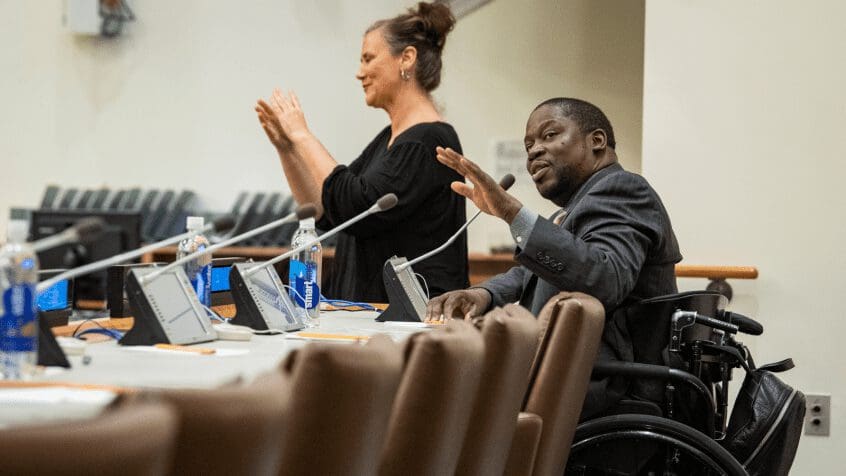What is the UNCRPD?
The UN Convention on the Rights of Persons with Disabilities (UNCRPD) follows decades of work by the United Nations to change attitudes and approaches to persons with disabilities. It takes to a new height the movement from viewing persons with disabilities as “objects” of charity, medical treatment and social protection towards viewing persons with disabilities as “subjects” with rights, who are capable of claiming those rights and making decisions for their lives based on their free and informed consent as well as being active members of society.
The Convention is intended as a human rights instrument with an explicit, social development dimension. It adopts a broad categorization of persons with disabilities and reaffirms that all persons with all types of disabilities must enjoy all human rights and fundamental freedoms. It clarifies and qualifies how all categories of rights apply to persons with disabilities and identifies areas where adaptations have to be made for persons with disabilities to effectively exercise their rights and areas where their rights have been violated, and where protection of rights must be reinforced.
For the UN page on this convention follow the link below:

Disability and Inclusion Strategy
Work Towards Meeting the Requirements of the UNCRDP
Anti discrimination legislation is an important cornerstone in signalling to international observers that Guernsey’s government is committed to progressing down a rights based route in line with the convention.
There are a number of different areas that the GDA is involved with to help bring about the change needed to provide the breadth of cover under the UNCRPD which should ultimately enable the extension of the convention to Guernsey. For more information on some of these please see below.
Article 24 – Education
The GDA is working to ensure all education is inclusive and accessible. Part of this is through work with the States with ESC and HSC but also with other providers of education. The SEND review is an important document for the States to implement and we will be helping them with this.
